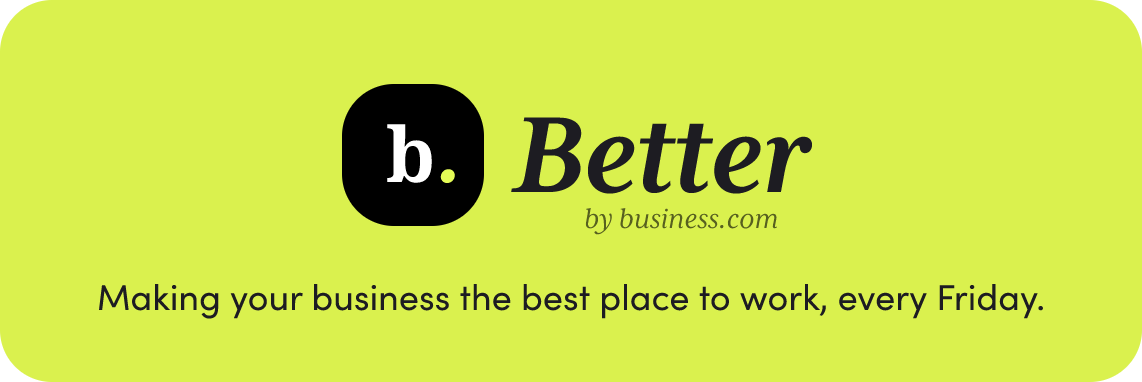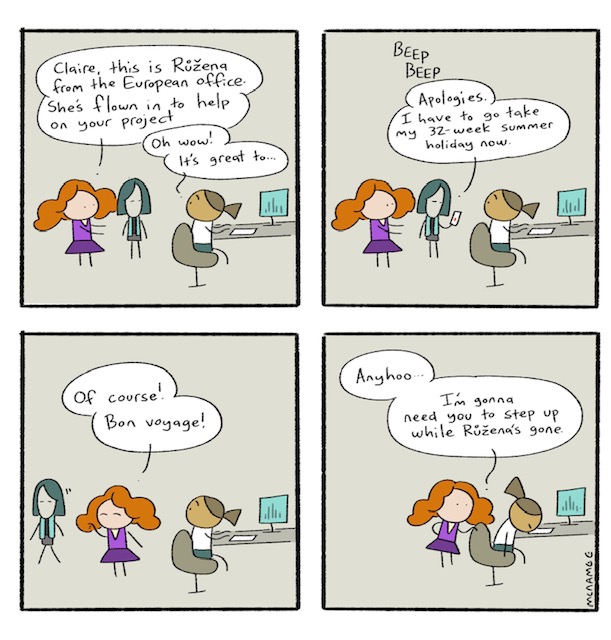Who has the right to use the phrase “Taco Tuesday”? If Taco Bell gets its way, everyone. The fast-food chain has petitioned the U.S. Patent and Trademark Office to prevent competitor Taco John’s from maintaining its exclusive hold on the alliterative lingo. “Taco Bell believes ‘Taco Tuesday’ is critical to everyone’s Tuesday. To deprive anyone of saying ‘Taco Tuesday’ — be it Taco Bell or anyone who provides tacos to the world — is like depriving the world of sunshine itself,” Taco Bell says in its filing.
To be fair to Taco John’s, which has held the “Taco Tuesday” trademark since 1989, Taco Bell’s motivations are a little suspect. While the home of the Chalupa is portraying its request as one of altruism (YOU get to say Taco Tuesday! And YOU get to say Taco Tuesday!), the reality is that the company’s real goal is probably to be able to capitalize on the popularity of the phrase for its own marketing campaign. Indeed, Taco John’s CEO fired back in a statement, “I’d like to thank our worthy competitors at Taco Bell for reminding everyone that Taco Tuesday is best celebrated at Taco John’s.”
In other words, in a never-ending quest to attract customers, this saucy situation is the latest sign that the fast food wars are reaching new heights. We’re going to need some chips and guacamole for this, stat.
|
The Generational Divide: Fact or Fiction?
Hacks: How to Leverage the Strengths of Each Generation
Was this email forwarded to you? Sign up here.
|
Generations (Not So) Divided
|
This might be the first time in history you can look across your office and see five generations of workers, spanning from the Silent Generation to Gen Z — unless, of course, your in-person office no longer exists.
The narrative we tend to hear about the generational divide is that the modern workplace is doomed:
Boomers and millennials can’t get along.
Gen Zers are taking over the place.
The generational divide is making harmony in the workplace a thing of the past.
And so on and so forth.
Don’t they have a point, though? Aren’t Gen Zers committed to listening to music during meetings, while boomers are still trying to figure out how to actually get onto Spotify in the first place? Maybe not.
Recent studies suggest most generations value the same things in their leaders, organizations, and careers.
For example, a Gallup poll showed that the two most important things employees value across all generations are ethical leadership and whether or not employers care about their well-being. This LiveCareer survey found that all generations value job prestige more than any other aspect, beating job security, chances for growth, and flexibility.
And research featured in the Journal of Business and Psychology looked at 20 different studies with almost 20,000 respondents. It revealed small and inconsistent differences between worker sentiments and attitudes across generations.
|
|
|
So what gives? If studies indicate employees value the same things at work, why do we assume all Gen Zers want to live and work on TikTok (this might actually be true) and boomers are technologically inept?
If you look at the plethora of social media posts and buzzy articles on generational differences, what you’ll find is a bunch of stereotypes crowding the conversation: Millennials are lazy, Gen Zers lack respect for authority, and boomers are resistant to change. Ironically, research shows our beliefs in these stereotypes — and the fear and anxieties that carry into those beliefs — influence our behaviors and attitudes at work far more than any actual differences we can firmly put a finger on.
If we’re going to cross the generational divide, we have to try to see that the divide isn’t as big as we think it is … and when we put our assumptions aside, we might find that the bridge to get across that divide is already built.
|
|
|
‘Hacks’ on Attracting New Audiences Without Throwing Out the Old
|
Speaking of bridging the generational divide … In the age of NFTs and influencer marketing, seasoned executives might be hesitant to adopt trendy strategies promoted by their younger employees. After watching the zany HBO comedy series “Hacks,” something tells us it might be worth rolling the dice.
The show follows the downfall and resurgence of Deborah Vance (Jean Smart), a fading stand-up comedian who loses her permanent residency at the Palmetto Casino in Las Vegas.
Given her unwavering fan base, Deborah laments that she doesn’t have to work for laughs like she used to. She hit a peak in her career, and rather than switching gears, has continued to coast on the durability of her schtick.
To help combat her shortcomings, Deborah hires a younger writer named Ava (Hannah Einbinder) to help reinvent her act. She is initially hesitant to take Ava’s advice given her conceited attitude, but as they spend more time together, Deborah begins to cherish her wit and veracious outlook.
Ava pushes back against Deborah’s fixation on self-deprecating punchlines and challenges her to take accountability for her tumultuous past. Deborah follows Ava’s advice while writing her new comedy special, which shines an honest light on her experiences as a female comic in a male-dominated industry. This approach would later prove to help younger audiences relate to Deborah’s perspective.
After shopping the program to different streaming services, Deborah’s team is left with second-rate offers. Given her confidence in the material, Deborah decides to self-fund her special and sell DVD copies to her loyal followers. The bold move generates instant buzz and a bidding war that ends with Deborah back on top of her game.
The lesson? With great risk comes great rewards. Deborah’s career comeback highlights the value of leveraging younger employees who might have fresh ideas to attract new audiences. At the same time, however, remember to balance this with traditional strategies that have already proven to be successful.
Check out more game-changing business lessons from Emmy-nominated TV shows.
|
Going It Alone: Seeking Help Autonomously Is Key to Personal Success
|
Dr. Steven Rogelberg is Chancellor’s Professor at UNC Charlotte and former president of the Society for Industrial and Organizational Psychology.
It is essential to seek help from others when confronting obstacles, facing novel challenges, disentangling tenuous tasks, or working under pressure. After all, it’s not realistic to expect we know and can do all we are confronted with. However, help-seeking strategies don’t all look alike.
Social psychologists have categorized help-seeking into two main types: dependent help-seeking and autonomous help-seeking. Dependent help-seeking involves searching for a quick fix or looking for an immediate answer from somebody. While this strategy conserves time and may lead to instant gratification, this type of help-seeking typically doesn’t yield long-term success or self-sufficiency.
Autonomous help-seeking, on the other hand, involves seeking assistance from others. But the goal is to learn and then apply the learnings to get the effort done independently. This strategy promotes long-term self-sufficiency, similar to the adage, “Give a person a fish and they’ll eat for a day, but teach them to fish and they’ll eat for a lifetime.”
Autonomous help-seeking has a positive correlation to job performance, whereas dependent help-seeking is negatively related to performance. So, although it’s easy to fall into the dependent help-seeking path given its efficiency and your potential urgency, it will not ultimately promote your success.
We acknowledge asking for help is not always easy; however, it does become easier if you have a reputation of offering help to others. Consistently ask others what you can do to help them. For instance, you can ask a direct report: “What are your goals for this week, and how can I support you?”
Similarly, you could ask a colleague: “Is there anything you might need my help with? I’m happy to assist.” These offers of help will be well-received, and they increase the chances of others stepping up to help you in your time of need. Helping begets helping. And, hey, it’s just a nice thing to do, period.
|
On May 19 in Business History
|
- 1885: Jan Matzeliger conducted the first mass production of shoes with his lasting machine invention.
- 1857: William Channing and Moses G. Farmer patented the electric fire alarm in the U.S.
- 1932: Great Depression relief funds ended. The federal government had to pass major public construction plans in excess of $1 billion.
- 1989 & 1993: The Dow Jones hit record-high numbers on this day across two different years — in 1989, when it passed 2,500 for the first time, and in 1993, when it closed above 3,500 for the first time.
- 2005: Star Wars: Episode III — Revenge of the Sith came out. Although it wasn’t the biggest film worldwide in 2005 (it was beaten by Harry Potter and the Goblet of Fire), it was the highest-grossing domestic film, earning $380 million that year.
|
|
|
Written by Ali Saleh and Antonio Ferme. Comic by John McNamee.
|
|
|
|






